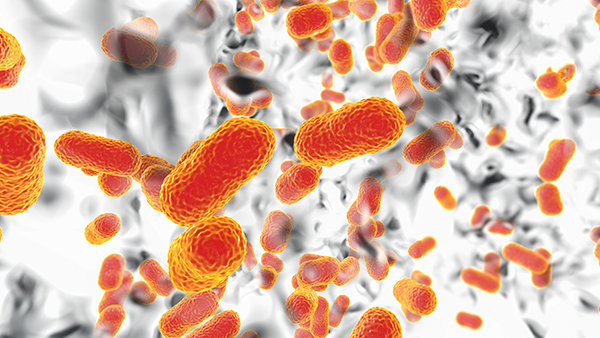
The UN Environment Program (UNEP) sounded the alarm about superbugs in a report, adding that antimicrobial resistance – an umbrella term for bacteria, viruses, parasites and fungi that are evolving to evade our medicines – could be responsible for an additional 10 million deaths each year by 2050.
Drug-resistant infections already directly kill millions of people around the world. In the U.S., more than 2.8 million antimicrobial-resistant infections are reported each year. More than 35,000 people die as a result, according to the 2019 Antibiotic Resistance (AR) Threats Report of the Centers for Disease Control and Prevention (CDC).
Doctors, farmers, livestock producers and others routinely use antimicrobials (including antiparasitics, antibiotics, antifungals and antivirals) to prevent and treat infections in humans, animals and crops.
But microbes have been adapting to overcome these treatments essentially since their introduction. And now, environmental conditions might be increasing the risk of such superbugs, per the United Nations.
Changes in weather patterns, more rainfall and pollution from more closely packed, dense cities and urban areas all facilitate the spread of antibiotic resistance, said Dr. Scott Roberts, an infectious diseases specialist at Yale School of Medicine who was not involved with the report.
Roberts added that this is only going to go up with time "unless we take relatively drastic measures to curb this."
Per the UNEP report, antimicrobial resistance could also have big economic consequences in addition to the higher death count. These include a decline of at least $3.4 trillion in gross domestic product (GDP) each year by 2030, which would send an additional 24 million people into extreme poverty.
The economic toll will result from the "disruption of trade losses, livestock productivity and higher health care costs." Poorer countries will likely bear the brunt of those economic consequences, said Anthony D. So, a public health researcher at Johns Hopkins University.
Over-prescription and overuse of antibiotics fuel the rise of SUPERBUGS
Until now, global attention to superbugs has focused on the overuse of antimicrobials. They are prescribed too much and applied aggressively in agriculture – allowing resistant pathogens to evolve.
Case in point: A study at Brigham and Women’s Hospital in Boston found that doctors prescribed antibiotics in 60 percent of the cases where people came in complaining of sore throats. This is despite the fact that only 10 percent of those patients had strep throat, the only case of sore throat antibiotics can cure.
On top of that, Big Agriculture aggressively uses antibiotics both to keep healthy animals from getting sick and to help them grow faster.
Untreated wastewater discharges, population growth, urbanization and other factors are also creating favorable conditions for bugs to develop resistance to drugs. (Related: Bug wars! Superbugs creating health and environment devastation across America.)
Left unaddressed, these issues could "take humanity back to an era when even mild infections could become deadly," according to the report.
As temperatures rise and extreme weather events become more common and severe, drug-resistant microorganisms are flourishing. In particular, researchers are concerned that pathogens are adapting to and thriving in a warmer climate, which could lead to increased rates of infection in humans.
The typical human body temperature is between 97 F and 99 F, which has historically created an inhospitable environment for many harmful microorganisms, particularly fungi. However, emerging fungi like Candida auris are now able to grow just fine in humans' warm bodies.
In a statement, UNEP Executive Director Inger Anderson pointed out that the same drivers that cause environmental degradation are worsening the antimicrobial resistance problem. "Cutting down pollution is a prerequisite for another century of progress toward zero hunger and good health," he said.
Given that human actions have contributed to antimicrobial resistance, limiting antibiotic overuse and misuse is one crucial step to curb the emergence of superbugs.
"Antibiotics and antifungals do not work on viruses, such as colds and the flu. These drugs save lives. But, anytime they are used, they can lead to side effects and antimicrobial resistance," the report stated.
It also emphasized that the health of people, animals, plants and the environment are closely linked and interdependent. Authors of the report called on governments to introduce policies that will limit antibiotic use in agriculture and reduce environmental pollution.
Visit SuperBugs.news for more stories about superbugs.
Watch this video discussing five natural antibiotics that kill superbugs.
This video is from the Natural News channel on Brighteon.com.
More related stories:
Nurses' scrubs and hospital bed rails often contaminated with antibiotic-resistant superbugs.
Hospital wastewater releases deadly superbugs directly into the environment.
Sources include:
Please contact us for more information.






















